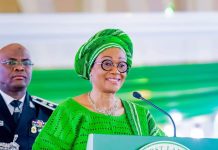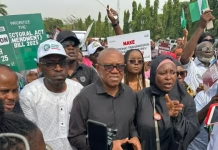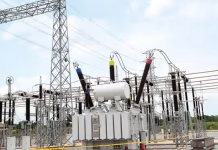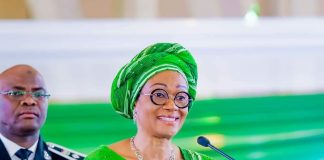The Minister of Finance and Coordinating Minister of the Economy, Mr. Wale Edun, has asserted that Nigeria’s economic climate has achieved a degree of stability over the preceding 18 to 20 months. Edun made this statement during a Zoom dialogue session held in Abuja this Thursday. According to him, the economy narrowly averted a collapse, having operated on central bank funds procured through irregular borrowing, exceeding regulatory limits.
“Our current position indicates that in the final quarter of 2024, the economy expanded at approximately 3.84 percent, aligning closely with the annual target of 3.4 percent.
“Examining the metrics, inflationary pressures have commenced a deceleration.
“It registered a decline of 1.3 percentage points between January and February, and food inflation is also on a downward trajectory.
“Furthermore, the cost of petroleum and energy has decreased, influenced by sectoral dynamics,” he stated. Edun noted that the stabilization of the exchange rate has positively influenced the cost of imported goods and services, including healthcare and education.
He further disclosed that the trade balance was positive, with government revenues increasing by 20 percent in 2024. Edun conveyed that the economy was stabilizing, the budget deficit was contracting, and debt servicing as a proportion of revenue had decreased.
“All economic indicators are progressing in the desired direction, and crucially, the cost of living is progressively improving.
“With this advancement, the government is now focused on reinforcing stabilization and cultivating an environment conducive to private sector investment.
“We are also utilizing technology to enhance revenue generation from government-owned enterprises,” Edun explained. The minister indicated that the tax reform bill is poised to elevate the top-tier personal income tax rate from 18.6 percent to 25 percent, while also implementing stricter controls on government spending.
He stated that economic growth would be propelled by agriculture, housing, and infrastructure. Regarding agriculture, he affirmed that the government would continue to ensure robust harvests through enhanced dry and wet season farming techniques.
According to him, in relation to improved housing, the introduction of 25-year low-interest mortgages with single or low double-digit interest rates is aimed at addressing the housing deficit.
“The Highways Management and Development Initiative (HMDI) would facilitate the concessioning of major highways to improve road infrastructure,” he stated. Edun indicated that the government is transitioning from concessional and bilateral financing to more economical funding sources, including a domestic bond issuance.
He also reiterated the government’s commitment to resolving legacy pension debt, revealing that over N700 billion in bonds had been issued for pension payments.
Acknowledging Nigeria’s continued reliance on oil revenues, Edun emphasized that the government is actively creating a secure and investor-friendly environment for oil operations.
“Maximize revenue from fossil fuels while they remain viable, encourage public-private partnerships, joint ventures, and privatization to stimulate investment.
“The present moment calls for equity, revenue generation, and private sector engagement, both domestically and internationally,” he stated.












